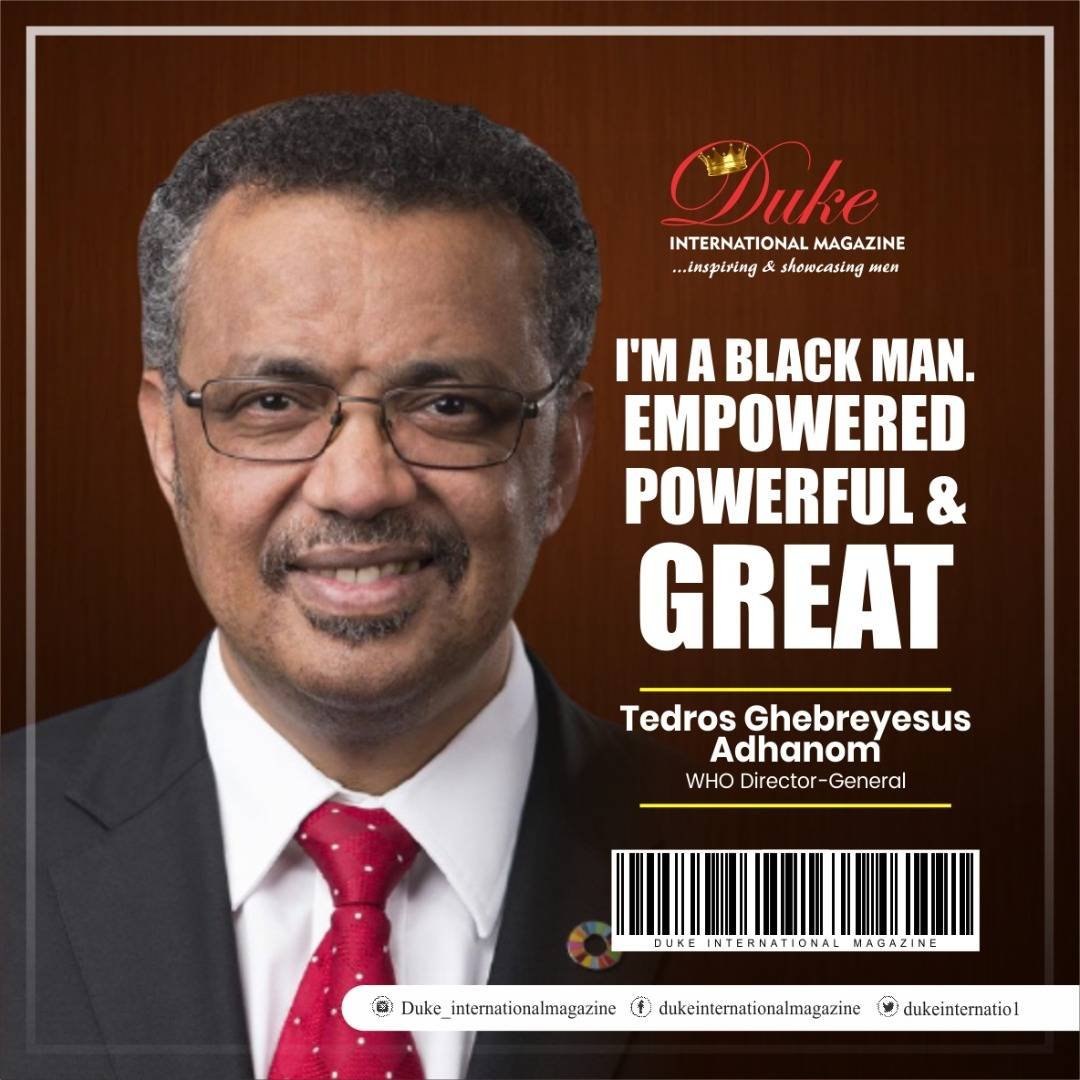Tedros Adhanom Ghebreyesus is an Ethiopian biologist, public health researcher, and Director-General of World Health Organization (WHO). Born in March 3, 1965, in Asmara, Eritrea, the renowned immunologist is the first non-physician and first African in the role to assume the exalted seat of the WHO, having being endorsed by the African Union.
With the death of his younger brother at age 3 to the cusp of possibly preventable disease like measles, Tedros’ itching questions towards global healthcare began culminating. He went on to receive a BSc. in Biology from the University of Asmara in 1986, and with a subsequent pursuance of master’s degree in Immunology of Infectious Diseases from London School of Hygiene & Tropical Medicine at the University of London in 1992. Holding a doctorate in community health from the University of Nottingham, got Tedros an appointment as the head of the Tigray Regional Health Bureau in 2001.
He resumed fully into public service in 2003 following his appointment as a Minister of State for Health. The capacity in which he served for over 12 months.
Between 2005 and 2012, Tedros was confirmed as the Minister of Health of Ethiopia. His appointment was timely as at when Ethiopian health ministry faced challenges that spans through poverty, poor infrastructure, and a declining global economic situation. During his time in office, Tedros designed the health workforce “flooding” reform strategy that has resulted in the training and deployment of thousands of doctors, nurses, pharmacists, laboratory technologists and health officers. This program included the construction of 4,000 health centers, trained and deployed more than 30,000 health extension workers, and developed a new cadre of hospital management professionals as part of a Health Extension Program (HEP). A 2011 Demographic Health Survey suggests that these efforts shelved Ethiopian infant mortality from 123 deaths per 1,000 live births in 2006 to 88 in 2011.
His landmark initiative prompted the United States’ State Department named Ethiopia as one of the US Global Health Initiative Plus countries, providing the country with greater access to resources for public health projects in 2010. Tedros’ ingenuity and expertise in handling public health-related issues as a health minister made Ethiopia to be the first country to sign compact with the International Health Partnership. This then availed him the good opportunity to chair the Roll Back Malaria Partnership (2007-2009), and other UN-affiliated health bodies.
In addition, he served as member of the Global Alliance for Vaccines and Immunization (GAVI) Board.
With a rising achievement adding up to his resumé, he served as vice-president of the 60th World Health Assembly that was held on 14–23 May 2007.
Under Tedros, the Ministry of Health was able to turn around Ethiopia’s record of the highest number of new HIV infections in Africa, bringing the number down drastically. The prevalence was reduced from its double digit record to 4.2 in cities, and 0.6 in rural areas. The decline in the infection rate has been attributed to the concerted effort of the Ministry of Health in providing medicines and organizing various awareness-raising programs.
The Black man with all shades of brilliance was appointed as the Ethiopian Foreign Affairs minister between 2012 and 2016. In this public position, Tedros was responsible for the organization of the Addis Ababa Action Agenda (AAAA) document in which the attending countries committed to financing for the Sustainable Development Goals (SDGs).
He also helped achieve the agreement between the Federal Government of Somalia and Jubaland Political Actors, which played a role in improving the delivery of health services and protecting the safety and security of Somali citizens.
At the time of the 2013 Ebola virus outbreak in West Africa, Tedros played a pivotal leadership role in the Africa Union’s response. He particularly facilitated greater country ownership and urging countries to adhere to the WHO guidelines including the full implementation of the International Health Regulations.
Tedros’ jostle for the seat of the director-general of the WHO was successful in 2017, becoming the first director-general who is not a medical doctor. He became the first African to lead the WHO, as well as the first Director-General elected in a vote open to all Member States.
In the office of the director-general, Tedros has overseen the WHO management of the Kivu Ebola epidemic.
Tedros has identified universal health coverages as his top priority at WHO.
In early 2020, Tedros oversaw the world’s management of novel COVID-19 pandemic.
The multi-award public health specialist is a member of several boards.

